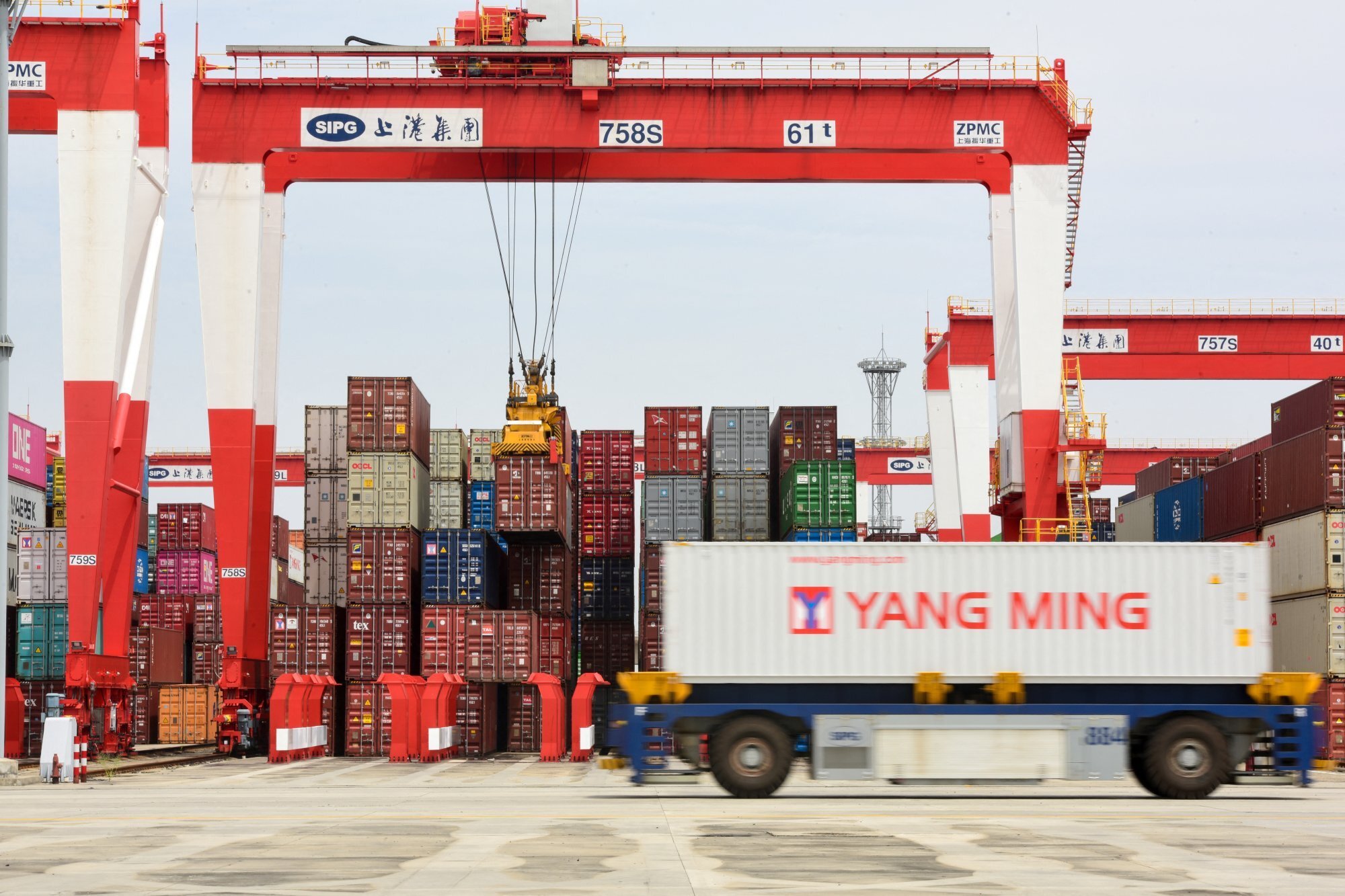
Shanghai to let another 1,188 manufacturers resume production after Covid-19 cases stabilise
- The municipal government has yet to publish the names of the 1,188 manufacturers, but they will be required to operate in so-called closed loop operations
- Shanghai, the country’s most developed metropolis with 25 million people, has yet to publish a time frame for lifting the citywide lockdown that began on April 1
Shanghai will allow another 1,188 manufacturers to resume production after Covid-19 cases showed signs of stabilising following a month-long citywide lockdown.
Mainland China’s commercial and financial capital also plans to let more shops, restaurants and bank branches reopen in a step-by-step approach as it looks to get the ailing local economy back on track.
Key manufacturing businesses in the automotive, life science, chemical and semiconductor sectors will be given priority on the so-called white list as Shanghai eases virus prevention and control measures.
“We will keep guiding and supporting firms” as they resume production, said Zhang Hongtao, chief engineer with the Shanghai Commission of Economy and Information Technology. “The questions raised by companies [on how to comply with virus control rules] will be addressed.”
Shipyard races to hit deadline for China’s new aircraft carrier
The municipal government has yet to publish the names of the 1,188 manufacturers, but they – along with the first batch of white listed firms that included Tesla and China’s chip champion Semiconductor Manufacturing International Corp – will be required to operate in so-called closed loop operations where workers essentially sleep on site to avoid contact with outsiders.
The latest announcement came after new cases in Shanghai hit a 26-day low on Saturday and the city brought the number of infections in low-risk “unguarded zones” to zero.
A total of 9,196 cases were detected on Friday, dropping for the seventh consecutive day.
Not a single case was discovered in low-risk precautionary zones – residential compounds without a single infection over the past 14 days – or their surrounding area.

Shanghai, the country’s most developed metropolis with a population of 25 million, has yet to publish a time frame for lifting the citywide lockdown that started on April 1.
Since the Omicron variant of Covid-19 was first detected on March 1, 563,000 Shanghai residents have been infected and there have been 384 deaths.
Public transport in the city is suspended and private cars are barred from using streets, with most residents restricted to their homes.
“The existing challenges of logistics and staffing shortages continue to be pressing issues for many European companies,” the Shanghai chapter of the European Chamber of Commerce said in a statement issued Friday.
“The Chamber notes that only 247 foreign firms are included in the white list -a cause for concern as multinationals are more likely to be added but not their suppliers, exacerbating the broken supply chain which hinders the implementation of the work resumption policy,” the chamber said, referring to the first batch of 666 white-listed companies.
China’s manufacturing and services activity drop as zero-Covid bites
It added that the bottlenecks resulting from broken supply chains and a severe shortage of trucks would last until the end of June due to stringent regulations on granting permits for cross-border drivers.
Shanghai decided to come up with the white list under pressure from foreign diplomats, business groups and multinational firms that called for an easing of anti-coronavirus control measures.
The city set an economic growth target of 5.5 per cent this year, but analysts said it was likely to miss that number due to the economic disruption from the lockdown.
The backbone sectors that underpin Shanghai’s local economy are also of vital importance to the nation, as thousands of carmakers, hi-tech firms and consumer products manufacturers in the world’s second-largest economy depend on Shanghai-made components to sustain operations.
Stemirna Therapeutics, a biotechnology firm on the first white list, said on Friday it had received the go-ahead from the National Medical Products Administration to begin human trials for a Covid-19 vaccine based on mRNA technology.

During the lockdowns over the past month, about 200 employees have been operating at its production base in Zhoupu, in Shanghai’s Pudong New Area.
Shanghai-based life science companies received nearly 25 per cent of the country’s total capital investment in the sector, according to research by property service firm JLL. The data showed that leasing demand from life science companies climbed from 13 per cent of all industries in 2020 to 26 per cent in 2021.
Daniel Yao, head of research for JLL China, said Shanghai has good reason to select firms in key industries like life science ahead of lifting the lockdown.
“Shanghai’s life science industry is expected to prosper further, supported by strong market demand, supportive government policy, better talent acquisition strategies, and sustained capital inflows,” he said.

